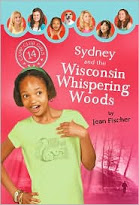
1. Character Name Generator. A simple tool for creating unique male and female character names.
2. Behind the Name, Random Name Generator. Create names based on different nationalities and other categories.
3. Prompt Generator, from Writing Fix. Create writing prompts using three random story elements: setting, character, conflict.
4. The Imagination Prompt Generator. Simple, practical prompts to jumpstart your thinking. Good ideas for personal narratives, short stories and blog posts.
5. Big Huge Thesaurus Blog Post Idea Generator . . . and More. Hundreds of blog post ideas and a thesaurus and rhyming dictionary, too!
6. Sloganizer. Generate slogans based on any keyword you type in. Need a slogan for a character’s tee shirt or business? This is the place to start.
7. Visuwords Online Graphical Dictionary and Thesaurus. Learn about specific words using this visual word map. Find their meanings and associations with other words and concepts.
8. Wridea. Register for free to use this web application for writers who want to organize their ideas and better manage the writing process. Wridea can also be used to share outlines and brainstorming sessions with friends.
9. Writeboard. Another sharable writing tool that can be used for editing and brainstorming.
10. The Awesome Highlighter. This tool lets you highlight text on any website and save it as a small link. What a great way to share bits and pieces of information when you collaborate on a project!
11. Bibme Bibliography Maker. If you're a nonfiction writer, you'll love this automatic bibliography maker. It supports MLA, APA, Chicago or Turabian formats.
12. AutoCrit Editing Wizard. Enter text and find overused words, repeated phrases and analyze sentence length variation. An amplified version with more options is available for an annual fee.
13. Cliché Finder. Are you trying to eliminate clichés from your writing? Paste your text into this handy tool, and it will find the clichés and make your writing as fresh as a daisy. Tell your friends you heard it through the grapevine!
14. Academic Index. This is a great research tool for finding reliable sources. It was created by the former chair of Texas Association of School Librarians and only pulls from databases and resources that are approved by librarians and educators.
15. ipl2. Another reliable research tool, this one is like having your own reference librarian. Type in a topic or question, and let ipl2 find resources you can trust. This site is the result of a merger of the Internet Public Library (IPL) and the Librarians' Internet Index (LII).
Orange’s Unlimited Web Page. I added this one just for fun because good things should never end. All writers need a break once in a while. This site is a creative diversion, but be careful—it’s addictive!

Disclosure of Material Connection: I have not received any compensation for writing this post. I have no material connection to the brands, products, or services that I have mentioned. I am disclosing this in accordance with the Federal Trade Commission’s 16 CFR, Part 255: “Guides Concerning the Use of Endorsements and Testimonials in Advertising.”


















